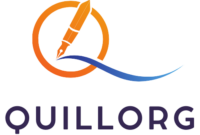In today’s fast-paced world, the ability to communicate effectively through writing is more crucial than ever. High school students stand at a pivotal point in their educational journey, where honing their writing skills can unlock a myriad of opportunities. Writing workshops tailored specifically for this age group offer an invaluable platform for young writers to explore their creativity, develop their voice, and refine their technical skills.
These workshops provide a supportive environment where students can experiment with different genres, receive constructive feedback, and learn from experienced instructors. They’re not just about improving grades; they’re about empowering students to express themselves confidently and compellingly. As students engage with peers who share their passion for writing, they also build a community that fosters collaboration and inspiration. By attending writing workshops, high school students gain more than just skills; they cultivate a lifelong appreciation for the written word. This foundational experience can shape their academic and personal growth, preparing them for future challenges.
Writing Workshops For High School Students
 Writing workshops for high school students offer a dynamic approach to skill development. They focus on various aspects of writing, including creativity, technique, and voice. Students engage in activities designed to stimulate imagination and improve technical prowess. Workshops often include peer review sessions, fostering collaboration and feedback.
Writing workshops for high school students offer a dynamic approach to skill development. They focus on various aspects of writing, including creativity, technique, and voice. Students engage in activities designed to stimulate imagination and improve technical prowess. Workshops often include peer review sessions, fostering collaboration and feedback.
Experienced instructors guide students through different writing styles, genres, and formats. They provide insights into narrative structure, character development, and thematic exploration. These sessions encourage students to experiment with new ideas and take creative risks. Workshops also build a sense of community among participants. Students connect over shared interests, boosting motivation and confidence. The collaborative environment nurtures friendships and develops networking skills beneficial for future endeavors.
Participation in these workshops extends benefits beyond writing. Students gain critical thinking and communication skills. They learn to articulate thoughts clearly and persuasively, contributing to academic success across subjects. The experience often sparks a lifelong passion for writing and literature appreciation. Such workshops empower students by equipping them with tools essential for both personal and academic achievement.
Key Features Of Effective Workshops
Effective workshops for high school students incorporate several key features to enhance writing skills and foster creativity. Instructors with extensive writing backgrounds lead workshops. They bring expertise from academic, professional, or literary fields, providing students with valuable insights.
with extensive writing backgrounds lead workshops. They bring expertise from academic, professional, or literary fields, providing students with valuable insights.
By sharing personal experiences and offering tailored advice, they instill confidence in students’ writing abilities. Their knowledge of narrative techniques and genre conventions enriches the learning experience. Workshops feature interactive sessions to engage students actively in their learning. Activities such as group discussions, peer reviews, and writing exercises encourage active participation.
Students learn to articulate ideas and provide constructive feedback. Interactive exercises help students refine their skills and understand the value of collaboration. Exposure to various genres and formats challenges students’ writing perspectives. Workshops cover poetry, short stories, essays, and other styles, fostering adaptability in writing approaches. Students experiment with different structures, themes, and voices. This diversity equips them with the ability to write creatively across different contexts and purposes.
Benefits For High School Students
 Writing workshops provide high school students with opportunities to enhance their skills and creativity. They also prepare students for future academic challenges. Workshops focus on improving technical abilities. Students learn about grammar, syntax, and style through practice and feedback. Peer reviews and instructor guidance refine skills, leading to clearer, more effective writing.
Writing workshops provide high school students with opportunities to enhance their skills and creativity. They also prepare students for future academic challenges. Workshops focus on improving technical abilities. Students learn about grammar, syntax, and style through practice and feedback. Peer reviews and instructor guidance refine skills, leading to clearer, more effective writing.
By experimenting with different formats, students adapt to varied writing demands. Workshops nurture creative expression and boost confidence in one’s abilities. Engaging activities encourage students to explore unconventional ideas. Supportive feedback helps students recognize their strengths, motivating them to take creative risks and embrace diverse writing styles. Workshops offer crucial preparation for college applications, emphasizing the development of a compelling personal narrative. Students receive guidance on crafting impactful essays, learning to convey unique perspectives and achievements. This preparation directly supports college admission success.



